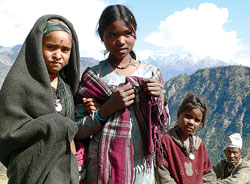|
|
Nepal's peace-time governments should get back to basics to kickstart development, says a new report by Oxfam International.
That means investing more money in essential services like safe drinking water and education in order to build physical and intellectual infrastructures solid enough to support future growth. But it doesn't imply simply putting money into politicians' hands, adds the new report, Serve the Essentials, which examines the South Asian region.
At least 20 percent of government-and donor-money should go to essential services, but with measures to stem corruption, such as right to information laws. And the cash should be spent wisely. For example, at least 15-20 percent-not the current under five percent-of states' recurrent spending should be on non-salary items, like school chalkboards.
The document repeatedly cites the success of the Sri Lankan model: invest heavily in initial programs and infrastructure and reap the benefits for decades after. In the 1950s and 60s, Colombo devoted five percent of GDP to education, and though today that's down to three percent, the state still provides free education for all up to university.
Wealth is not the determining factor for success, argues the report. "Government actions matter more than national income. High human development achievers either rely on public-led systems, or inject substantial public finances into essential service delivery [to uphold their citizens' basic human rights."
The report says that in addition to free health and education, and a greater role for women in community decision-making, services should be delivered universally, rather than spending precious resources determining who should get them.



